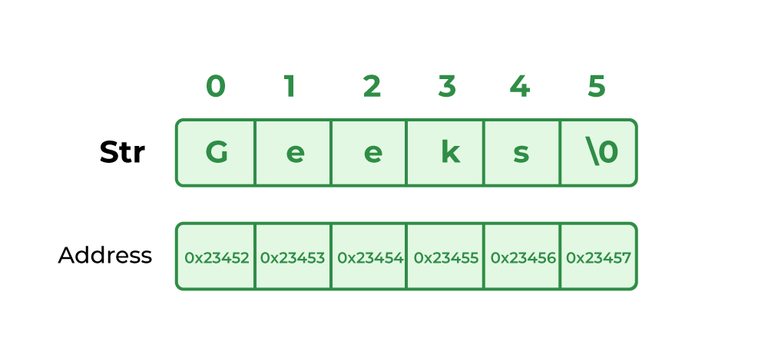Immutable Strings: A Key Element in Ensuring Information Uniformity and Integrity
In the realm of information monitoring, the relevance of unalterable strings can not be overemphasized. The concept of immutable strings transcends plain triviality; it is a cornerstone in the complex web of data governance.
The Principle of Immutable Strings
Unalterable strings, a fundamental principle in shows, refer to strings that can not be modified when they are created. Fundamentally, as soon as a string worth is designated, any kind of procedure that shows up to modify the string actually creates a new string. This immutability ensures data consistency and dependability in applications, as it protects against unexpected changes to the original data.
Advantages in Data Uniformity

Information consistency is important in different facets of software program growth, including data source management, multi-threaded atmospheres, and dispersed systems (Why are strings immutable in Java?). Unalterable strings add dramatically to attaining this uniformity by stopping information corruption as a result of concurrent accessibility. In scenarios where several procedures or threads engage with the exact same information all at once, unalterable strings function as a guard against race conditions and synchronization issues
Moreover, the immutability of strings simplifies debugging and screening processes. With immutable strings, programmers can trust that when a string is established, it will continue to be unmodified, making it easier to trace the resource of errors and making certain that examination situations generate regular outcomes. This integrity in data taking care of ultimately causes more steady and robust applications.

Executing Unalterable Strings
Making certain the immutability of strings calls for a thoughtful approach to their implementation in software application growth. One key technique is to design string courses in a means that stops adjustments as soon as a string item is produced. By making strings unalterable, designers can enhance information uniformity and dependability in their applications.
To apply immutable strings successfully, designers should favor creating new string objects as opposed to changing existing ones. This technique ensures that when a string is appointed a value, it can not be altered. Furthermore, any type of operation that shows up to modify the string must create a new string with the wanted adjustments rather of altering the original.
Moreover, making use of immutable strings can streamline concurrency monitoring in multi-threaded settings. Considering that immutable strings can not be transformed after development, they can be securely shared among several strings without the danger of data corruption.
Function in Reliability Assurance
In software program development, the use of immutable strings plays an important function in making sure the integrity of information procedures. Immutable strings, as soon as created, can not be modified, making sure that the data they stand for remains constant throughout the application's execution. This immutability property provides a level of guarantee that the data being refined will not be inadvertently altered, resulting in unforeseen results or mistakes in the system.
By integrating immutable strings into software design, developers can enhance the integrity of their applications by lessening the risks related to mutable information - Why are strings immutable in Java?. Immutable strings assist in protecting against information corruption or unplanned website here alterations, which can be specifically continue reading this vital when dealing with delicate details or when information integrity is vital
In addition, the use of unalterable strings simplifies concurrent processing, as numerous threads can safely access and share string data without the danger of one string altering the web content while an additional is reviewing it. This aspect adds considerably to the total integrity of the software program system, making sure predictable and regular behavior in information dealing with procedures.
Applications and System Combination
The smooth assimilation of immutable strings right into various applications and systems is crucial for making sure durable data uniformity and integrity across varied technological atmospheres - Why are strings immutable in Java?. Unalterable strings play an important duty in enhancing the integrity of data exchanges and communications within complex software communities. By including unalterable strings into applications, developers can alleviate the risks connected with data tampering, unapproved adjustments, and unintentional modifications, thus strengthening the general safety and security posture of the system
Immutable strings can enhance interoperability in between diverse systems by offering a standardized style for information representation, allowing much more reliable information handling and exchange methods throughout interconnected platforms. By embracing immutable strings in applications and system combination procedures, organizations can fortify their information framework and promote the integrity and uniformity of their details assets.
Verdict
In verdict, unalterable strings play an essential duty in keeping data consistency and integrity in different applications and system combinations. By guaranteeing that strings can not be transformed when created, the integrity of information is protected, reducing the threat of errors and inconsistencies. Executing unalterable strings can considerably improve the dependability of systems, ultimately resulting in more dependable and exact data handling.

Comments on “Why Are Strings Immutable in Java? Comprehensive Evaluation for Programmers”